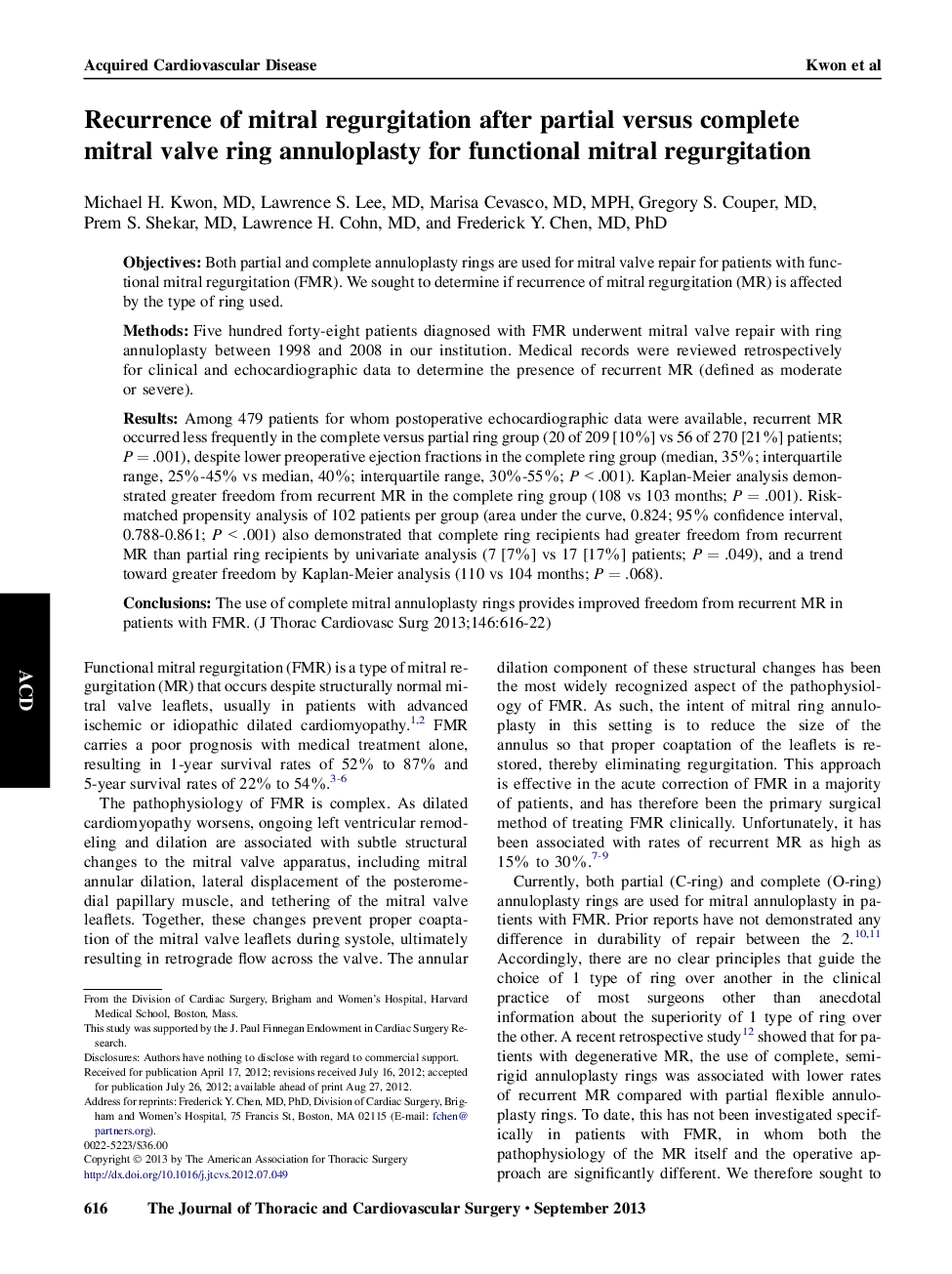| Article ID | Journal | Published Year | Pages | File Type |
|---|---|---|---|---|
| 5990131 | The Journal of Thoracic and Cardiovascular Surgery | 2013 | 7 Pages |
ObjectivesBoth partial and complete annuloplasty rings are used for mitral valve repair for patients with functional mitral regurgitation (FMR). We sought to determine if recurrence of mitral regurgitation (MR) is affected by the type of ring used.MethodsFive hundred forty-eight patients diagnosed with FMR underwent mitral valve repair with ring annuloplasty between 1998 and 2008 in our institution. Medical records were reviewed retrospectively for clinical and echocardiographic data to determine the presence of recurrent MR (defined as moderate or severe).ResultsAmong 479 patients for whom postoperative echocardiographic data were available, recurrent MR occurred less frequently in the complete versus partial ring group (20 of 209 [10%] vs 56 of 270 [21%] patients; PÂ =Â .001), despite lower preoperative ejection fractions in the complete ring group (median, 35%; interquartile range, 25%-45% vs median, 40%; interquartile range, 30%-55%; PÂ <Â .001). Kaplan-Meier analysis demonstrated greater freedom from recurrent MR in the complete ring group (108 vs 103 months; PÂ =Â .001). Risk-matched propensity analysis of 102 patients per group (area under the curve, 0.824; 95% confidence interval, 0.788-0.861; PÂ <Â .001) also demonstrated that complete ring recipients had greater freedom from recurrent MR than partial ring recipients by univariate analysis (7 [7%] vs 17 [17%] patients; PÂ =Â .049), and a trend toward greater freedom by Kaplan-Meier analysis (110 vs 104 months; PÂ =Â .068).ConclusionsThe use of complete mitral annuloplasty rings provides improved freedom from recurrent MR in patients with FMR.
